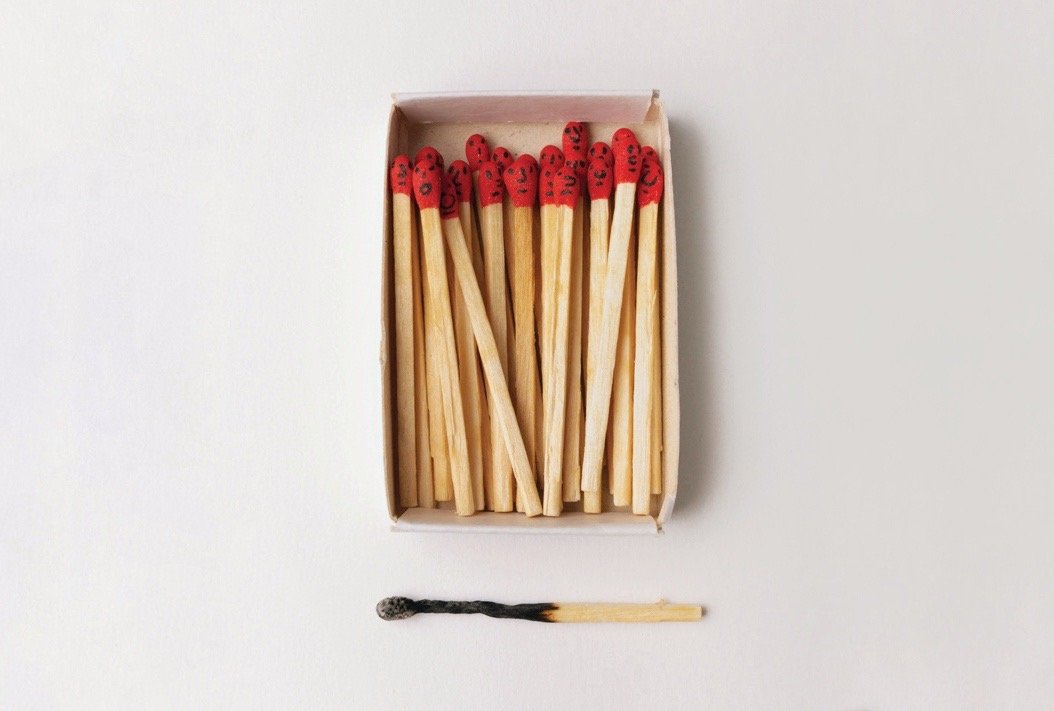Burnout
The blog site BigLawSucks once provided a window into the soul-crushing world of the big-city law firms. The anonymity of the site invited rather vivid accounts by both associates and junior partners of lives being sucked dry not only by the killer hours but by the cumulative emotional, physical, and mental stresses. One could at times even follow and chronicle certain individuals as they struggled to keep up with the incessant demands until – poof! – they disappeared. Burnout.
Perhaps burnout is better seen as a metaphor than a medical diagnosis i.e. an exhaustion, a loss of self, so deep that it bumps against one's capacity -- intellectual, experience, and willpower -- to function. It also differs from mere stress in that stress generally connotes something more acute, more transitory, to which some may actually be addicted, even regarded as a mark of distinction, a sort of modern-day Descarte: "I’m stressed; therefore I am."
My own attraction to the BigLawSucks site arose, not out of some sort of schadenfreude, but because the sense of psychological wiring on fire became evident in my own years as in-house counsel for a multinational corporation undergoing a major and complicated Chapter 11 "Reorganization." In that exercise, a reorganization involving a multinational and its dozen foreign subsidiaries, the sun became the enemy as it shone perpetually somewhere, and so did the issues. The feeling was that of a zombie.
Quit whining.
Burnout can afflict anyone (Burnout: Modern Affliction or Human Condition?). The air-traffic controllers, tethered by duty to scope and computer, brought the phenomenon to consciousness a few decades ago. Teachers suffer burnout – long hours, short on recognition, sometimes vulnerable to assault. Social workers and nurses can burn out from too much association with hopelessness. The list goes on: police officers; professional athletes; students; executives. Even Sina.
The burnout often suffers alone. Nobody wants to hear about it as it makes everyone uncomfortable – at least, not in America where can-do is practically the secular religion. This further isolates the burnout as everyone expects the subject to bounce back and resume work as before the collapse. Nobody wants to hear that such a return may no longer be possible, that the burnout no longer has the means to care -- the burnout sets in when the adrenaline wears off.
Perhaps we’re on to something called the Great Resignation. The competition has become fierce for those secure, well-paid jobs that were once considered the birthright of the middle class. Many of the others are left to fend in the much-lauded gig-economy, so heavily skewed that the vast majority faces killer hours as they try to earn even a lower-middle class income. Adding, then, the housing costs and student debt, this would seem to be a ripe area for discussion.
While we may want to share our own example of burnout, the discussion may well focus on the societal effect. What comes to mind is the story of the desert traveler who comes upon a hoard of gold coins. In order to carry off the most gold the traveler (having visions of luxury) dumps his food and water only to find the real treasure was the food and water he foolishly dumped, for his life depended not on gold but on what he discarded. A crude story, perhaps, but what sometimes comes to mind when contemplating a society and economy that seems optimized to burn people out.
At the macro-level we might rethink the true costs of burnout as we contemplate our growth-for-growth’s-sake economy versus the various resulting societal pathologies. We might then apply the very same question to ourselves – what has been gained and what has been lost – as we fully come to grips with its true true costs.

